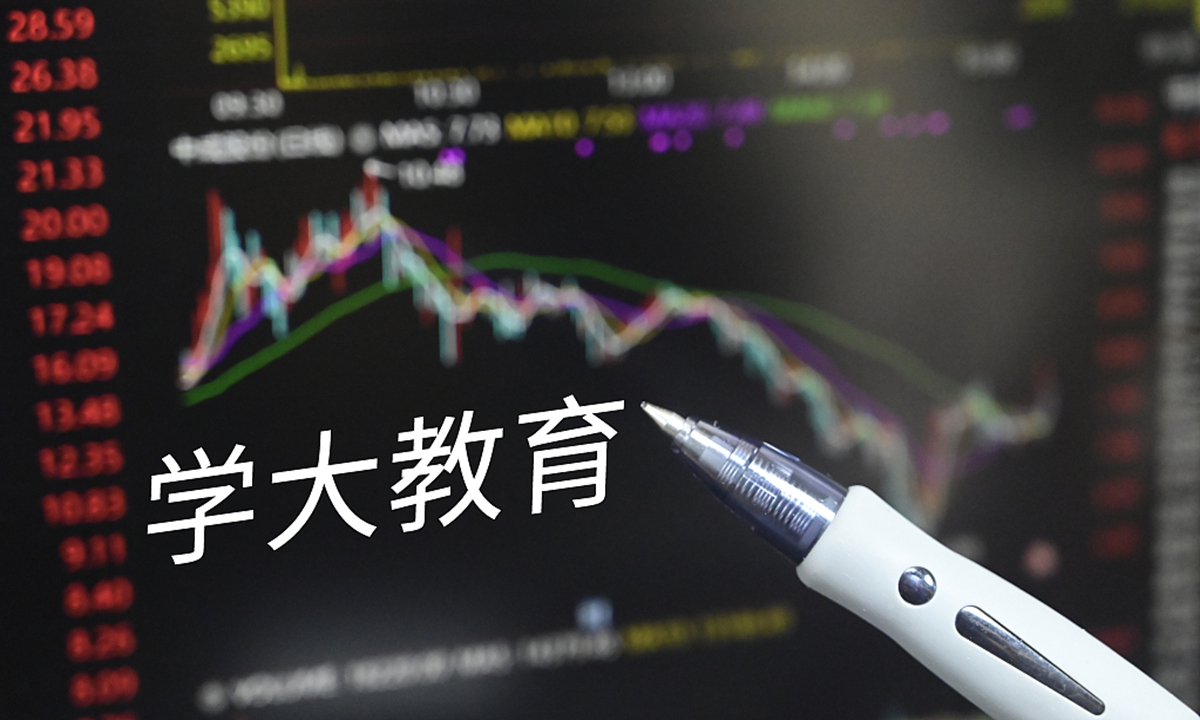
A trajectory of one education company's stock Photo: CFP
Chinese mainland shares remained mostly lower on Wednesday, with the benchmark Shanghai index continuing a losing streak following a new outbreak of the coronavirus in the country. But there were already signs that the market was stabilizing.
The Shanghai Composite Index edged down 0.58 percent on Wednesday, extending its weekly losses to 5.32 percent. The benchmark quickly sank 2 percent to 3,312.72 points - its lowest level of the year - as the morning session began, before rebounding and ending down 0.58 percent.
In a sign of sustained weakness at large, out of more than 3,300 stocks traded on the mainland bourses, only some 900 gained.
The continuation of China-US tensions also exacerbated investor jitters.
Chinese State Councilor and Foreign Minister Wang Yi met with US Deputy Secretary of State Wendy Sherman on Monday, when he urged the US to steer back to a rational China policy, according to the Xinhua News Agency.
"In face of severe difficulties and challenges in China-US relations, Wang said it requires serious consideration for the US side to make correct choices as to whether bilateral ties will head to confrontation or improvement," Xinhua reported.
Nonetheless, the A-share weakness on Wednesday seemed to have been eased by signs of market stabilizing.
The tech-heavy ChiNext index rose by 1.61 percent, ending its losses after four trading days in a row.
Electric vehicle battery giant Contemporary Amperex Technology Co, the top firm on the ChiNext board in terms of capitalization, gained 6.07 percent on Wednesday, largely recouping the previous day's 8.3-percent loss. Shanghai-listed liquor giant Kweichow Moutai, the most valuable A-share firm, closed up 3.27 percent, ending a five-day losing streak.
Hong Kong's benchmark Hang Seng Index and its Hang Seng TECH Index both closed higher, reversing continued losses over the previous few days.
In yet another sign of eased investor woes, net inflows via the northbound trade link between the Hong Kong and mainland stock exchanges topped 10 billion yuan ($1.54 billion) on Wednesday.
The price-earnings ratios of Chinese stocks remain relatively low compared with those of both developed markets and most emerging economies, Wang Chunying, deputy director of the State Administration of Foreign Exchange, said on Friday, highlighting the investment-worthiness of Chinese shares.
Global Times


